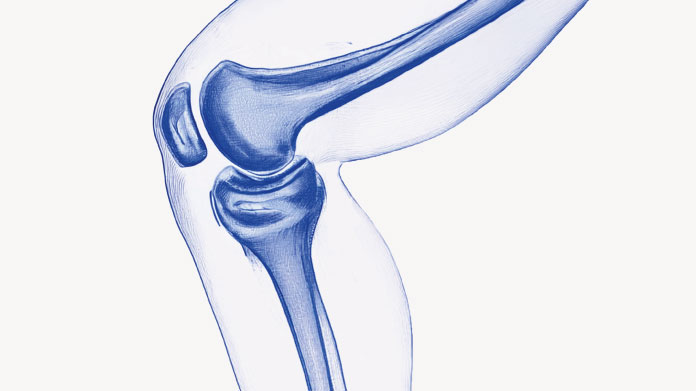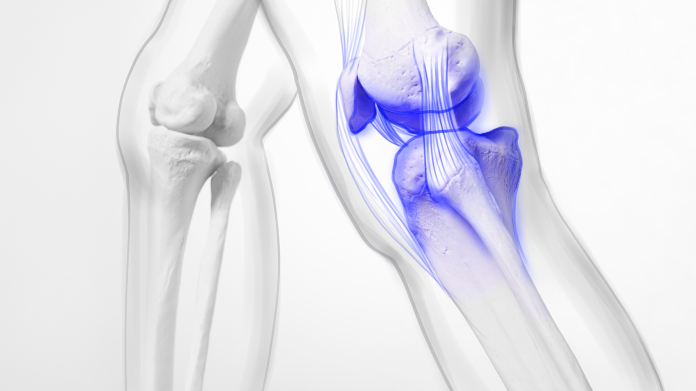Vitamin D deficiency: symptoms and solutions
Almost half the world’s population could be lacking in vitamin D! The experts at SuperSmart have put together this update, summarising everything you need to know about this important vitamin: its roles in the body, its significance, the risks of inadequate levels, how to prevent and treat deficiency …

General overview of vitamin D
Let’s begin with a brief description. Vitamin D is one of the body’s key allies. It plays a role in numerous functions and is essential for certain mechanisms such as bone mineralisation and cell division. You might know it as the ‘sunshine vitamin’, as the body is able to produce it solely through the action of the sun’s rays on the skin. It’s hardly surprising, then, that deficiency in vitamin D is far from uncommon. The short days and overcast weather of winter produce the kind of conditions in which levels of vitamin D can plummet!
What constitutes vitamin D deficiency?
There are two possible ways of defining vitamin D deficiency. A general one would be to define it as a state of insufficiency. Production is too low to meet the body’s daily requirements, necessitating an intake from external sources, via the diet or vitamin D supplements.
Deficiency can also be defined scientifically or biologically. For this, levels of vitamin D in the body need to be evaluated, which is not as simple as it might seem. Analysing a blood sample allows you to measure the concentration of substances circulating in the blood. But vitamin D is stored in different parts of the body, particularly in the liver, muscles and adipose tissue.
To establish whether an individual is deficient, it’s necessary to examine the derivative forms of vitamin D circulating in the blood such as 25-dihydroxyvitamin D. For example, the US National Institutes of Health (NIH) has established the following thresholds:
- a 25-dihydroxyvitamin D serum concentration of less than 30 nmol/L constitutes vitamin D deficiency associated with the development of serious problems;
- a 25-dihydroxyvitamin D serum concentration of between 30 nmol/L and 50 nmol/L constitutes vitamin D deficiency likely to impair the health of healthy individuals;
- a 25-dihydroxyvitamin D serum concentration above 50 nmol/L is considered an appropriate level of vitamin D.
What is vitamin D for? Why is it so important?
As mentioned, vitamin D fulfillls numerous roles in the body and a shortfall can have an adverse effect on health. It’s perhaps best-known for its importance for healthy bones. Vitamin D actually increases intestinal absorption of calcium and phosphorus, two minerals vital for strong bones. They also play a role in tooth mineralisation and in maintaining healthy cartilage.
The link between phosphorus, calcium and vitamin D goes even further. Vitamin D also controls the elimination of these two minerals via the kidneys. Broadly speaking, it helps to maintain phosphorus and calcium at the right levels to meet the needs of the body’s tissues. In other words, an adequate intake of vitamin D can help prevent a deficit in calcium and phosphorus and thus protect against associated problems such as osteoporosis.
Vitamin D is involved in many more of the body’s functions. In contributing to the process of cell division, it plays a role in cell growth and renewal, and is thus important at various levels in the body.
It also helps maintain muscle function by intervening at a neuromuscular level. Studies show that it also supports healthy immune function by acting on the processes of inflammation.
What are the signs of vitamin d deficiency?
One of the problems of vitamin D deficiency is that it can remain undetected, while all the time causing damage in the body. Initially there may be no symptoms, but it can induce hypocalcaemia – abnormally low levels of calcium in the blood. Over time, this calcium deficit can have many consequences, particularly for bone health.
As the deficit in vitamin D increases, early symptoms may appear:
- bone weakness, with an elevated risk of fractures;
- decreased muscle tone, accompanied by fatigue, a decline in physical and cognitive performance, lack of motivation, etc. ;
- episodes of tetany and convulsions.
What risks are posed by a lack of vitamin D?
Early treatment of vitamin D deficiency is particularly important as it can have serious health consequences. In some cases, it will lead to anemia – a lack of hemoglobin which results in impaired oxygen transport in the blood and thus a poor supply to the body. Muscle weakness and extreme fatigue are also symptoms of anemia.
Among the risks posed by insufficient vitamin D are two abnormalities:
- childhood rickets, which is caused by defective mineralisation of bone tissue during growth and which can result in malformation and bone pain;
- osteomalacia in adults which also involves impaired bone tissue mineralisation, bone pain and bone deformity.
Vitamin D deficiency and osteoporosis – what’s the connection?
Research shows there is indeed a link between vitamin D deficiency and osteoporosis. As mentioned, a lack of vitamin D can cause osteomalacia and this defect in bone mineralisation is a recognized risk factor for osteoporosis. As we know, this is a skeletal disease characterised by a loss of bone density and an increased risk of fractures.
Maintaining adequate vitamin D levels is known to reduce the risk of osteoporosis. Similarly, health professionals warn against calcium deficiency which is also a risk factor for this disease. Fortunately, specific formulations have been developed to prevent or correct these two types of deficiency. They include the supplement MultiMineral Complex which helps increase levels of calcium and vitamin D. This supplement also provides magnesium, zinc, boron, silicon and chromium, all of which help the body function at its best!
How can you avoid becoming deficient in vitamin D?
It is entirely possible to prevent vitamin D deficiency. There are two complementary ways of meeting the body’s needs for this vitamin.
The first is the endogenous route whereby the vitamin is synthesised in the body through the action of the sun’s ultraviolet rays, or more specifically, its UVB rays. These penetrate the skin and convert 7-dehydrocholesterol into provitamin D3 which is then converted into vitamin D3, one of two forms of natural vitamin D. However, despite the efficacy of this synthesis, certain conditions have to be in place for it to happen. Firstly, there needs to be bright sunshine. Secondly, you need to be outside, exposing your skin to it, rather than stuck in an office with the windows blocking out the UVB rays. Even when these criteria are met, health professionals warn of the dangers of too much sun exposure, and recommend we protect ourselves from UV rays as much as possible (by wearing appropriate clothing, hats, sunblock …). It’s clear then, that we also need to turn to another source of vitamin D!
The second solution is what’s called exogenous intake where the vitamin is obtained from an external source via the diet and/or nutritional supplementation. A number of such sources are available providing different forms of vitamin D. Experts have defined two forms:
- vitamin D2, which comes from plants;
- vitamin D3, or cholecalciferol, which comes from animal sources and corresponds to the vitamin D naturally produced by the body.
What are our requirements for vitamin D?
Before we go on to explore the sources of natural vitamin D, let’s first look at how much the body needs. Given this vitamin’s importance and the risks posed by deficiency, public health authorities have established recommended nutritional intakes for vitamin D. However, these vary slightly from one country to another. There are several reasons for this but the most obvious one is the difference in levels of sunshine. The general climate, seasons, length of daylight hours ... these are all variable factors that influence endogenous production of vitamin D through exposure to the sun’s rays and thus affect how much additional intake our bodies need.
As an example, the French public health authorities estimate that endogenous production of vitamin D meets 50%-70% of the body’s needs, and based on this, experts have established the following recommended daily amounts:
- 5µg for adults and children over 3;
- 10-15µg for elderly individuals.
The US authorities have slightly different daily recommendations, based on a minimum level of sun exposure and low endogenous production:
What are the dietary sources of vitamin D?
As mentioned, there are two forms of vitamin D of which Vitamin D3 is the best-known and most widely-studied. It corresponds to the form produced naturally by the body and is found in animal-source products. Among the richest dietary sources of natural vitamin D3, are first and foremost fish, especially cod liver oil (with 250µg per 100g). Horse mackerel, swordfish, sardines, herring, mackerel and salmon all have a content of more than 10µg per 100g. Of course, vitamin D3 supplements are an unbeatable source since they have been formulated to provide the body with optimal levels of the vitamin.
Less well-known than D3, vitamin D2 is found in plant-source foods. For example, peanuts have a content of more than 10µg per 100g. It is also found in seeds as well as in vegetable fats which may contain up to 10µg per 100g. More surprisingly, vitamin D2 is also found in cocoa powder and mushrooms such as morels and ceps.
How can you correct vitamin D deficiency?
Having discussed at length how to prevent vitamin D deficiency, let’s now look at ways of correcting it. It’s important to address any shortfall as quickly as possible in order to prevent associated health problems. Supplementation is an ideal solution – it’s a natural treatment for vitamin D deficiency!
. These days, there are many vitamin D3 supplements available offering different strengths depending on individual needs. You can also vary your vitamin D dosage if you want to ‘kick-start’ your efforts to restore healthy levels!
For example, taking a 5000IU capsule of vitamin D3 provides the body with 125µg.
Does deficiency only result from insufficient synthesis and intake?
No! This article has so far focused on two causes of vitamin D deficiency: inadequate endogenous production and exogenous intake that fails to meet the body’s needs. But it is important to note that there are other potential reasons why we might be lacking in vitamin D. The good news is that supplementation is an effective response to these causes too!
It could, for example, be due to impaired absorption in the digestive tract. This means that the vitamin D ingested is not absorbed and thus cannot be used by the body. Depending on the case, this is a problem of bioavailability. To prevent such issues, the SuperSmart teams have worked hard to develop bioavailable formulations for optimal absorption and uptake.
Deficiency can also arise when there is excessive loss of vitamin D or an increase in the body’s needs. In either case, nutritional supplementation can compensate and prevent further health problems.
What vitamin D benefits can you expect to see from a course of supplements?
As supplementing with vitamin D is recognized as a way of helping to prevent or correct deficiency, it offers a number of benefits. Several studies have shown that it can help prevent osteoporosis by reducing loss of bone density. Follow-on studies have highlighted its efficacy in preventing falls and fractures.
The benefits of vitamin D supplementation for other aspects of health have also attracted scientific interest. Research shows it may play a role in preventing a number of problems including hypertension, type 2 diabetes and even multiple sclerosis. An association between vitamin D consumption and the prevention of dental caries has also been highlighted.
Encouraging results have also emerged in the area of cancer prevention. It seems that vitamin D may have protective effects against colon, prostate and breast cancer. The results of further studies should provide more definitive evidence of vitamin D’s benefits for preventing cancer.
How to choose the right vitamin D supplement?
Whether you want to prevent or correct vitamin D deficiency, choosing a vitamin D supplement requires care and attention. A number of factors need to be weighed up in order to select the right supplement for your needs. These include:
- the form of vitamin D offered: is it vitamin D3 or D2?
- the strength: how much do you need?
- the format: would you prefer capsules or a vitamin D spray?
- the brand: how reputable is the company? etc.
Who should be considering taking vitamin D supplements?
A large percentage of the population can benefit from supplementing with vitamin D. Indeed, statistics show that a lack of vitamin D can be a problem at any age and at any time. It is particularly common during cold periods when daylight hours are shorter.
Vitamin D supplementation: are there any contraindications?
Given that it helps the body function properly, vitamin D is a very well-tolerated compound. However, its ability to stimulate calcium absorption means it is contraindicated for those with hypercalciuria (excess calcium in urine) or calcium kidney stones. Women who are pregnant or breastfeeding should also seek medical advice before taking supplements. If you have the slightest concern, it is always best to consult a health professional.
What are the key points to remember about vitamin D deficiency?
This article provides a great deal of information on vitamin D deficiency. To summarise then, it’s important to recognize that such deficiency is common. It can affect anyone, at any age, at any time. A lack of sunshine and an inadequate intake is enough to result in a shortage of vitamin D, the signs of which are not always easy to spot. Fortunately, there is a wide range of dietary supplements available to prevent and correct vitamin D deficiency, the benefits of which are confirmed by a large number of studies.
NB : Vitamin D continues to be widely studied today. New findings may emerge which may contradict or confirm the information provided in this article. If you have any doubts, please consult a health professional.
References
- Institute of Medicine, Food and Nutrition Board. Dietary Reference Intakes for Calcium and Vitamin D. Washington, DC: National Academy Press, 2010.
- R. Nair, A. Maseeh, Vitamin D: The "sunshine" vitamin, J Pharmacol Pharmacother, Avr. 2012, 3(2):118-26.
- B. Vande Berg, et al., L’osteomalacie en 2009, Journal de Radiologie, Volume 90, Issue 10, Oct. 2009, Page 1188.
- L. M. Ward, et al., Vitamin D-deficiency rickets among children in Canada, CMAJ, Jul. 2007, 177(2):161-6.
- E. Hyppönen, et al., Intake of vitamin D and risk of type 1 diabetes: a birth-cohort study, Lancet, Nov. 2001, 358(9292):1500-3.
- A. G. Pittas, et al., Vitamin D and calcium intake in relation to type 2 diabetes in women, Diabetes Care, Mars 2006, 29(3):650-6.
- R. Krause, et al., Ultraviolet B and blood pressure, Lancet, Août 1998, 352(9129):709-10.
- K. L. Munger, et al., Serum 25-hydroxyvitamin D levels and risk of multiple sclerosis, JAMA, Déc. 2006, 296(23):2832-8.
- D. Wolpowitz, B. A. Gilchrest, The vitamin D questions: how much do you need and how should you get it?, J Am Acad Dermatol, Fév. 2006, 54(2):301-17.
- M. F. Holick, Vitamin D: the underappreciated D-lightful hormone that is important for skeletal and cellular health, Curr Opin Endocrinol Diabetes, 2002, 9:87-98.
- M. F. Holick, et al., Vitamin D deficiency, N Engl J Med, Jul. 2007, 357(3):266-81.
- J. C. Souberbielle, Épidémiologie du déficit en vitamine D, Geriatr Psychol Neuropsychiatr Vieil, 2016, 14(1) : 7-15.
- G. Jones, Pharmacokinetics of vitamin D toxicity, Am J Clin Nutr, Août 2008, 88(2):582S-586S.
- B. Wharton, N. Bishop, Rickets, Lancet, Oct. 2003, 362(9393):1389-400.
- L. M. Ward, et al., Vitamin D-deficiency rickets among children in Canada, CMAJ, Jul. 2007, 177(2):161-6.
- A. R. Webb, et al., Influence of season and latitude on the cutaneous synthesis of vitamin D3: exposure to winter sunlight in Boston and Edmonton will not promote vitamin D3 synthesis in human skin, J Clin Endocrinol Metab, Août 1988, 67(2):373-8.
- H. M. Pappa, et al., Vitamin D status in gastrointestinal and liver disease, Curr Opin Gastroenterol, Mars 2008, 24(2):176-83.
- R. P. Heaney, et al., Long-latency deficiency disease: insights from calcium and vitamin D, Am J Clin Nutr, Nov 2003, 78(5):912-9.
- M. F. Holick, Vitamin D. In: Shils ME, Shike M, Ross AC, Caballero B, Cousins RJ, eds. Modern Nutrition in Health and Disease, 10th ed. Philadelphia: Lippincott Williams & Wilkins, 2006.
- A. W. Norman, H. H. Henry, Vitamin D. In: Bowman BA, Russell RM, eds. Present Knowledge in Nutrition, 9th ed. Washington DC: ILSI Press, 2006.
- C. Cranney, T. Horsely, S. O’Donnell, H. Weiler, D. Ooi, S. Atkinson, et al. Effectiveness and safety of vitamin D. Evidence Report/Technology Assessment No. 158 prepared by the University of Ottawa Evidence-based Practice Center under Contract No. 290-02.0021. AHRQ Publication.
- Agence nationale de sécurité sanitaire de l’alimentation, de l’environnement et du travail (Anses), Vitamine D, www.anses.fr (Consulté le 01/08/2018).
- European Commission, EU Register of nutrition and health claims made on foods, ec.europa.eu (Consulté le 01/08/2018).
- Organisation Mondiale de la Santé (OMS), Rayonnement ultraviolet, www.who.int (Consulté le 01/08/2018).
- INTERSUN OMS – le projet UV mondial, Soleil et santé, Comment profiter du soleil en toute sécurité, www.who.int (Consulté le 01/08/2018).
Keywords
15 Hours
great products and prices
great products and prices
Marie
6 Days
Easy to navigate site
Easy to navigate site, had what I was searching for, good price. easy order-check out
James Tucker
12 Days
My skin is clearing up nicely!
Pretty good for my skin so far.
Christian
14 Days
The new packaging is excellent
The new packaging is excellent - finally! No more squashed boxes and torn envelopes.
GORAN
15 Days
Great Product
Great Product
Larry Garrett
19 Days
Quick shipping
Quick shipping; good price. No issues!
Mary McCarty
21 Days
Thr product is very good and is helping…
Thr product is very good and is helping me on my health. Then is always on time
LUGO Luz
23 Days
Buying was fine
Buying was fine. I had problems with the website not recognizing my login info, and had to call to get it fixed. Other than that, everything was good.
David S. Clark
24 Days
Your super maca and super ginseng are…phenomenal
Your super maca and super ginseng are phenomenal supplements that compliment each other when taking them together. Fantastic feeling of well-being and lots of mid day energy without the crash.
Keith Mason
26 Days
I have had amazing results with every…
I have had amazing results with every supplement I've purchased. I am extremely satisfied with this company
kirstin Torres
27 Days
Fine products
Fine products . They are on the leading edge of online supplements. The only issue -so far-is they sometime run out of subscription items.
Jason Argos
29 Days
The ordering process is very user…
The ordering process is very user friendly and the products always come in a timely manner.
CARTER Rhonda
30 Days
The price for Dr
The price for Dr. Pero's AC-11 is reasonable and in line with his views. (my former colleague). Keep it pure.
CAMPBELL Clayton
33 Days
Right on every time.
Right on every time.
Arthur Nicholas
36 Days
They are cheaper than everyone else and…
They are cheaper than everyone else and the shipping was fast. Great company.
Patricia Adams




